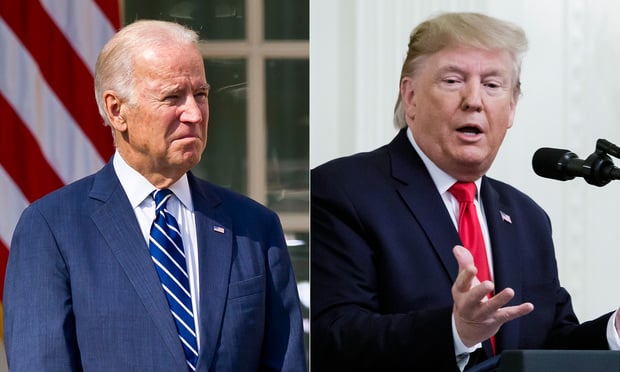Senate Republican leaders are starting what’s shaping up to be asecretive process to write their version of an Obamacare overhaul-- even after some GOP senators complained that the House devisedsweeping health-care legislation behind closed doors.
|Related: Industry insiders ponder AHCA impact on groupmarket
|Senate Majority Leader Mitch McConnell ofKentucky held a private meeting Tuesday of an all-male working group of GOP senators who willhelp shape the chamber’s own version of an Affordable Care Actreplacement. Among other changes, they’ll probably curb the Housebill’s deep cuts to Medicaid and bolster protections for insurancecustomers who are older, poor or have pre-existing healthconditions.
|There’s already talk of sending the new measure directly to avote in the full Senate without committee hearings -- if leaderscan gather the 51 Republican votes needed to muscle it through.
|“Sometimes it’s best to just put it on the floor,” SenateFinance Committee Chairman Orrin Hatch of Utah, who will decidelater whether to involve his panel or hold public hearings, saidbefore the meeting. He said Republican Shelley Moore Capito of WestVirginia attended part of the meeting and that women aren’t beingcut out.
|“They’re not excluded. They can come any time they want to asfar as I’m concerned,” Hatch said. He said he had “no problem” withwomen being added to the core group.
|Senator Lamar Alexander of Tennessee, chairman of the Senatehealth committee, insisted his panel already has held hearingsabout Obamacare’s limitations. The Senate needs to move quickly, hetold reporters.
|“We have a sense of urgency about the millions of Americans inthe individual market, which is about 6 percent of Americans, manyof whom are seeing their premiums go through the roof,” Alexandersaid.
|No public hearings
Some Senate Republicans have complained that even though HouseRepublicans considered their bill in open committee meetings, therewere no public hearings to hear outside views and only a few Housemembers were allowed to offer amendments before the chamber passedthe bill last week.
|"A bill -- finalized yesterday, has not been scored, amendmentsnot allowed, and 3 hours final debate -- should be viewed withcaution," GOP Senator Lindsey Graham of South Carolina wrote onTwitter last week.
|“Everybody ought to be at the table,” Senator Jerry Moran, aKansas Republican, was quoted as saying by the Kansas City Starlast week. "I want the committees of jurisdiction to hold hearings,bring the experts who know about health care from across thecountry, bring citizens to tell us their stories. Then I want everysenator, all 100 of us, to have the chance to offer amendments,make suggestions, take votes.”
|The Senate process will give senators a chance to offer dozensof amendments when the bill reaches the floor, but hearings aren’tguaranteed. Senate Republicans say they’re starting fresh withtheir own legislation because the House bill can’t get enoughsupport to clear the chamber. McConnell said Monday there’s notimetable for an agreement.
|“This process will not be quick or simple or easy, but it mustbe done,” the majority leader said on the Senate floor.
|‘Every dime’
Asked by reporters Tuesday why no women were included in theworking group, McConnell said, "The working group that counts isall 52 of us," referring to all Republican members of the Senate."Nobody’s being excluded. Everybody’s at the table."
|When Hatch came out of Tuesday’s meeting, he said he didn’t knowwhen the Senate would vote but that lawmakers need to bring healthcare under control because "the public wants every dime they can begiven."
|The 13-member Senate working group includes the top four GOPleaders, Hatch, Alexander, Ted Cruz of Texas, Mike Lee of Utah, RobPortman of Ohio, Tom Cotton of Arkansas, Cory Gardner of Colorado,Pat Toomey of Pennsylvania, and Budget Chairman Mike Enzi ofWyoming. Senator Ron Johnson of Wisconsin said he also would jointhe group.
|The senators met to discuss divisions among Republicans onMedicaid cuts, their first session since the House squeaked itshealth-care bill through on a 217-213 vote.
|Afterward, Cruz said the group agreed to seek a Medicaid packagethat “puts Medicaid on a long-term fiscally sustainable path” andwould give states more flexibility in running the program. Hepraised the House for passing its version, but said “there isconsiderable work to be done here in the Senate.”
|Women’s views
The secretive nature of the Senate talks is drawing some firefrom members of both parties. Senator Lisa Murkowski, an AlaskaRepublican, said she’s concerned about the lack of femalerepresentation and people with other perspectives. She said shealso thinks it’s a mistake to leave Democrats outside the door.
|"I want to make sure that the input of women is received, I wantto make sure that the input of rural America is received,"Murkowski said. "I want to hear from people that are from high-coststates like mine. This has got to be a process that represents allof the constituencies.”
|Senator Susan Collins of Maine said she gave a presentation toall Senate Republicans at a weekly luncheon meeting Tuesday. Shesaid she discussed Maine’s high-risk pools for patients withpre-existing conditions and told senators that federal funding forthose pools would need about $15 billion annually.
|“The House bill does not even come close to that," she said.
|All 48 members of the Senate Democratic caucus urged McConnellin a letter Tuesday to work on a bipartisan plan that can get 60votes. That level of support may be needed to enact changes inObamacare that can’t be included in a bill the Senate GOP plans topass by using a mechanism to avoid a Democratic filibuster.
|‘Uncertain path’
“Instead of trying to change the House’s ‘repeal and replace’legislation, which has an uncertain path to the president’s desk,you could instead choose to work with us on a bipartisanhealth-reform package that can garner 60 votes in the Senate andpass the House with Republican and Democratic votes,” the Democratswrote.
|The Senate Republican approach ignores a provision of the annualbudget blueprint adopted by Republicans in January. The healthcommittee and the Finance Committee were supposed to write a Senatehealth bill cutting the deficit by at least $2 billion over thenext decade. Instead, Republicans have suggested they are likely toamend the House bill with the Senate’s substitute on the floor ifthey can get enough votes in their party.
|Democrats predict they’ll never be able to do it.
|“To unite the differing wings of the Republican Senate caucus isgoing to be quite a lift,” said Senator Ron Wyden of Oregon, thetop Democrat on the finance panel.
|Copyright 2018 Bloomberg. All rightsreserved. This material may not be published, broadcast, rewritten,or redistributed.
Complete your profile to continue reading and get FREE access to BenefitsPRO, part of your ALM digital membership.
Your access to unlimited BenefitsPRO content isn’t changing.
Once you are an ALM digital member, you’ll receive:
- Critical BenefitsPRO information including cutting edge post-reform success strategies, access to educational webcasts and videos, resources from industry leaders, and informative Newsletters.
- Exclusive discounts on ALM, BenefitsPRO magazine and BenefitsPRO.com events
- Access to other award-winning ALM websites including ThinkAdvisor.com and Law.com
Already have an account? Sign In
© 2024 ALM Global, LLC, All Rights Reserved. Request academic re-use from www.copyright.com. All other uses, submit a request to [email protected]. For more information visit Asset & Logo Licensing.








